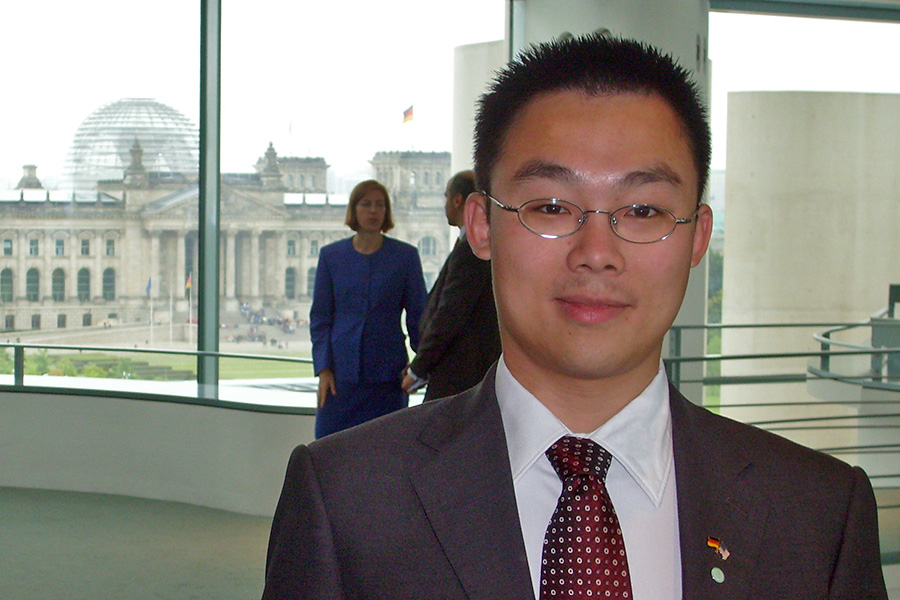Signature Course: Global Histories
In Global Histories, first-year students from across campus learn about democracies spanning a time period of more than 2,000 years, from Rome to France, Germany, Japan, China and Iran. More than just a history class, the course teaches students critical thinking, writing and the fundamentals of democratic systems.
The course, taught by Associate Professor Ricky Law, is one of the CMU's signature courses this fall. Over the summer, Law and his colleague Laurie Eisenberg worked to improve the course for this fall's hybrid experience and invest in the course for the long term, with support from CMU's Eberly Center.
With over two hundred undergraduates enrolled, Global Histories draws students from every college on campus. Making sure all of the students feel connected to the course material and to each other is no small task, but Law said that planning for the hybrid experience has freed up his imagination to try new things.

Ricky Law poses in front of the Reichstag in Berlin, Germany, where the Bundestag meets.
"I think it's possible to stick with skillsets we have in the physical classroom, but I also see this as an opportunity to try out new things that could significantly enhance the students' learning outcome," Law said.
One thing Law will introduce is role playing. This year, the course will culminate in a mock constitutional convention, where students will simulate a human colony designing a democracy.
"Students will draw up their own documents of how they would like to run a country if they get to do so," Law said. "And they soon will — they are our next generation of leaders."
Law hopes this roleplaying exercise will help students have more interpersonal interaction.
"To make a democracy work means putting oneself in the shoes of others, so that you care about the needs and the perspective of others," he said.
Law plans to hold regular office hours through an open Zoom meeting this fall, hoping to facilitate discussions amongst students outside of the classroom.
"There is usually a line forming outside of my office, which is a great way for students to meet and chat," Law said. "This semester I will have an open Zoom invitation and anyone who wants to can come in. We'll just have a group chat that will last as long as it needs to. "
Law said that these discussions among peers are important for students to learn.
"The essence of the class is to prepare them for real life in more ways than one-not only in the sort of the practical applicable skills like writing thinking and processing information, but actually applying their knowledge of how democracies function and fail," Law said.